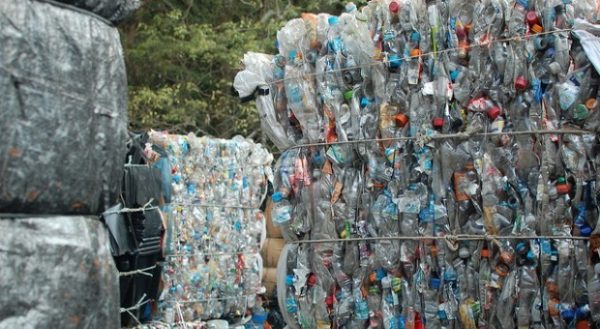Sweden Runs Out of Garbage, Imports from Other Countries for Carbon-Neutral Energy
Many countries in the world are struggling to deal with the garbage they generate. Especially in the developing world, it is common to find landfills full of garbage. These countries are unable to recycle their waste or use it for any useful thing. The garbage sits in the landfills and turns back to pollute the environment, causing damage to both the environment and human lives.
But in Sweden, the story is different. The Swedish government has prioritized sustainable resources in the country. For example, the country is gradually becoming a powerhouse in the generation of renewable energy. In 1991, Sweden became the first country in the world to implement a heavy tax on fossil fuels. Today, the country generates more than half of its electricity from renewable sources. Apart from this, Sweden has an ambitious plan to run entirely on renewable energy by 2040.
[do_widget id=text-16]
The country is showing it is indeed synonymous with sustainability. Since 2014, Sweden has taken a very radical approach to its garbage system. The country recycles 99% of its garbage—converting much of the waste to energy. The energy is produced by burning garbage in a furnace in a process known as incineration. Incineration is a waste treatment process that involves the combustion of organic substances contained in waste materials. Incineration and other high-temperature waste treatment systems are described as “thermal treatment.” Incineration of waste materials converts the waste into ash, flue gas and heat.
The newly-produced gas from this process is then used to spin generator turbines, which produces electricity and heat for people. This is known as Waste-To-Energy (WTE). Sweden has a total of 32 WTE plants located around the country.
According to statistics from Sweden’s National Waste Management Association, Avfall Sverige, the WTE plants heat around 950,000 homes. The plants also provide electricity for 260,000 homes across the country.
“The only fuel we use is waste. It provides one-third of heat for households in this region,” said Christian Löwhagen, a spokesman for Renova, a local government-owned energy company operating one of the WTE plants.

Although critics say the WTE project by Sweden is likely to increase CO2 emissions into the atmosphere through the burning of the garbage, experts say the process generates more clean energy than the burning of coal. It said about two thirds of the emissions of CO2 from the WTE project are treated like biomass and considered carbon neutral.
This means the project has become a success for the country. But as the country is recording success, it is at the same time, running out of the resource needed to generate the energy. Unlike in some countries where garbage has become a nuisance to the public, in Sweden, garbage is put to an effective use.
The country is importing garbage to offset the deficit. Private companies can import and burn garbage to generate energy.
“Swedish people are quite keen on being out in nature and they are aware of what we need do on nature and environmental issues. We worked on communications for a long time to make people aware not to throw things outdoors so that we can recycle and reuse. That’s a key reason that we have this district network, so we can make use of the heating from the waste plants. In the southern part of Europe they don’t make use of the heating from the waste, it just goes out the chimney. Here we use it as a substitute for fossil fuel,” Anna-Carin Gripwall, director of communications for Avfall Sverige said.
Sweden imports garbage from many European Union (EU) countries. These countries ship the waste to Sweden for free. There is a ban on landfill in EU countries, so instead of paying the fine, countries send their garbage to Sweden as a service. This is increasing Sweden’s capacity to generate more energy. However, some countries in the EU are learning from Sweden. Some have started building incinerators to start burning their waste to also generate energy. This means Sweden would be in short of garbage in the near future.
But the country is preparing to face the situation when it  would no longer receive garbage from abroad. The Independent reports that Swedish municipalities are individually investing in futuristic waste collection techniques, like automated vacuum systems in residential blocks, removing the need for collection transport, and underground container systems that free up road space and get rid of any smells. This would allow for an effective waste collection, making all garbage count for the country.
would no longer receive garbage from abroad. The Independent reports that Swedish municipalities are individually investing in futuristic waste collection techniques, like automated vacuum systems in residential blocks, removing the need for collection transport, and underground container systems that free up road space and get rid of any smells. This would allow for an effective waste collection, making all garbage count for the country.
Sweden has proved it has the skills to maintain the environment to a good shape. Probably, it is time countries elsewhere start learning from Sweden. The country has an immense potential on sustainability and other countries could easily tap into it. Countries who have problems taking care of their garbage could contact Sweden on how to turn it into a useful resource.
This article (Sweden Runs Out of Garbage, Imports from Other Countries for Carbon-Neutral Energy) via NB is a free and open source. You have permission to republish this article under a Creative Commons license with attribution to the author and AnonHQ.com.







